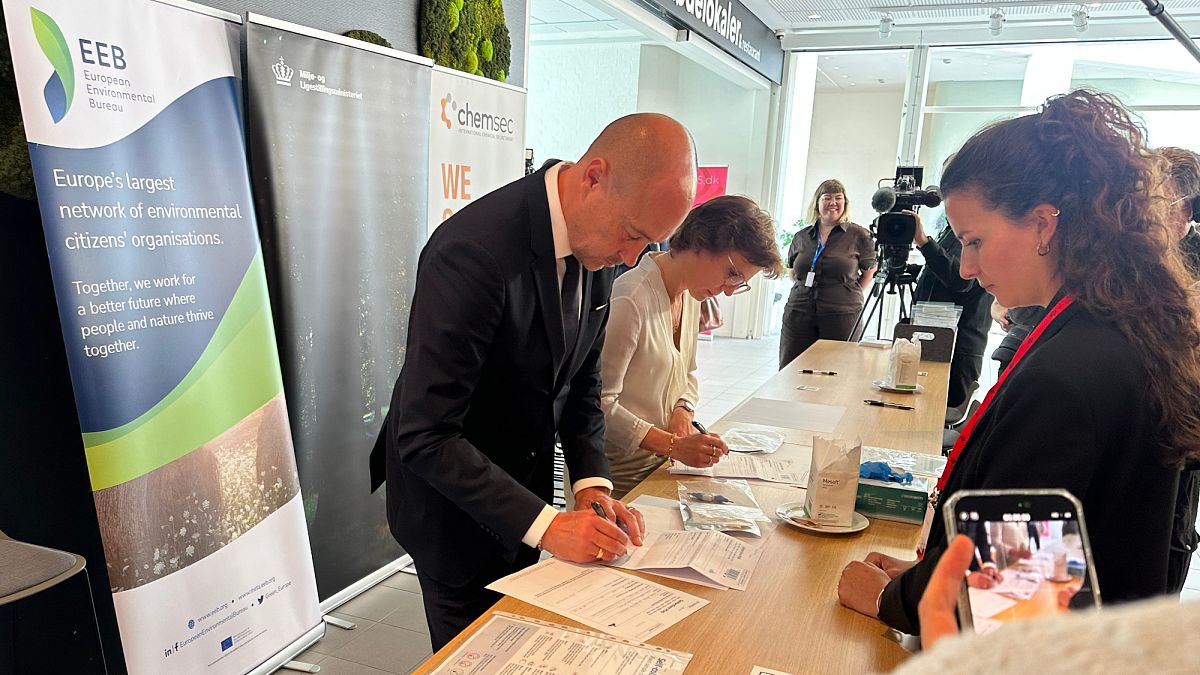

In a rapidly changing world, environmental challenges continue to emerge, prompting communities and policymakers to take action. From chemical contaminants affecting human health to natural phenomena impacting ecosystems and societies, each issue highlights the complex interaction between human activities and natural processes. This article explores three significant environmental concerns that have recently surfaced across different parts of the globe: the presence of toxic PFAS chemicals in Europe, the mass death of fish in an Australian lake, and the devastating floods in Pakistan.
Across Europe, concerns about human exposure to environmental pollutants have intensified as attention turns to the so-called ‘forever chemicals’ known as PFAS. These synthetic substances, used in a variety of industrial and consumer products, are resistant to degradation, leading to their persistence in the environment and accumulation in human bodies. Recent discussions have seen EU ministers being invited to test for these toxic chemicals in their blood, as nearly all Europeans, including vulnerable groups such as children and pregnant women, are affected. This initiative underscores the importance of understanding the potential health impacts of prolonged exposure to PFAS and encourages political leaders to prioritize environmental health in policy decisions.
Meanwhile, in the central west of New South Wales, Australia, Winter has brought about an ecological event impacting the local aquatic ecosystem. Residents around Lake Cargelligo began noticing the mass mortality of bony herring, a native fish species integral to the food web. These fish serve as a crucial food source for larger fish and various bird species. Investigations revealed that the cause of death likely stemmed from a phenomenon known as ‘winter die-off’, spurred by a sudden drop in water temperature. Such occurrences remind us of the delicate balance within ecosystems and the potential disruptions brought on by seemingly minor environmental changes. Addressing these challenges involves not just understanding the immediate causes but also fostering resilience in ecosystems to adapt to climatic shifts.
On a broader scale, climatic changes have increasingly precipitated severe weather events, as evidenced by the recent floods in Pakistan. Accelerated glacial melting, coupled with intense monsoon rains, has resulted in flash floods and landslides across the nation. Tragically, these natural disasters have claimed at least 72 lives and injured over 130 people since the onset of the rains in late June. The floods serve as a stark reminder of the impact of global warming as glaciers, once stable, now release vast amounts of water due to elevated temperatures. The Pakistani experience echoes concerns globally about the future trajectory of climate change and its far-reaching impacts. In the face of such challenges, collaboration and resilience-building become essential for communities vulnerable to these increasingly frequent and severe weather patterns.
As we navigate these diverse environmental crises, it becomes clear that proactive measures and informed policy-making are crucial. Each situation highlights the global need for increased awareness and accountability in managing human activities that influence natural processes. By fostering a comprehensive understanding and encouraging dialogue regarding these issues, societies can work towards sustainable solutions that harmonize human advancement with environmental preservation.
In conclusion, the pressing environmental issues we face, from chemical persistence in Europe to ecological imbalances in Australia and climate-induced catastrophes in Pakistan, call for a mindful and concerted effort to protect both the planet and its inhabitants. As we engage with these challenges, embracing a future-oriented perspective that prioritizes ecological health and resilience forms the cornerstone of our endeavors. It is only through cooperative, informed, and compassionate actions that we can hope to ensure a stable and thriving environment for generations to come.
Source: {link}
